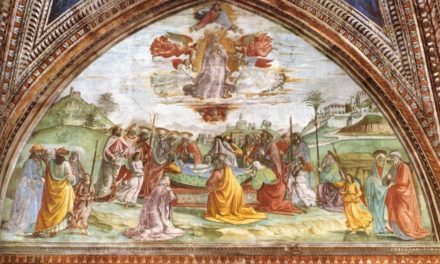The word kafir is a collective term that is usually translated as "infidel", although this word does not convey the pejorative flavor of the original Arabic term. Perhaps the "gyaur dog" used by the Turks best reflects the content of the Kafir. This includes not only atheists and polytheists, but also the "People of the Book" in the Qur'an. /6./
Originally, the People of the Book were mainly the Jews "struck by the wrath of God" and the "wandering" Christians (cf. K 1,7). Together with them, the Koran mentions the Sabeans, a monotheistic community located in Iraq (cf. Q 2.62; 5.69). Later, Zoroastrians and Mandaeans and perhaps other communities with holy books were included here. (The founder of the Zoroastrians, Zarathustra, who believed in a good and bad god, lived in the 6th century BC; the Mandaeans are the same age as Christianity, they called themselves "John Christians" after St. John the Baptist.)
In the Koran and in Muhammad's biography, there is much more talk about the Kafirs and the People of the Book than about the Muslims themselves. And almost everywhere the emphasis is on contempt, hatred and incitement to fight against them. Kafirs should not be friends (even if they are relatives or family members), they should be mocked, intimidated, and even (if they do not submit) killed. It is worth taking a look at the related texts:
K 3.28: Believers, do not make friends with kafirs instead of other believers! Those who do this, lose the protection of Allah , they are left alone as their own defenders.
K 83,34: On that day (in Paradise) the believers will mock the infidels, watching them from their marriage beds. Or shouldn't the kafirs be made to pay for everything they did?
K 8,12: (Remember!) When your Lord suggested to the angels: "I am with you. Strengthen those who believe! And I will sow terror into the hearts of those who disbelieve. So hit them above the neck and cut off every inch of their fingers!”
K 33.61: The Kafirs will be cursed, wherever they are, they will be captured and killed.
K 9:29: Fight against those who do not believe in Allah or the Last Day... Do this until they give the head tax (Jizat = in original Arabic: al-Jizyat) willy-nilly. They remain humiliated and despised.
Note: the above lines are from the chronologically last sura of the Qur'an, so they can also be considered the last words regarding the kafirs.
The paragraphs of the Sharia law related to kafirs also correspond to the above:
h 8.24: "It is not permissible to give zakat (alms) to a kafir."
w 59.2: "One must remain adamant against the infidels , act harshly against them, hate them until they accept the fate imposed by Allah the Exalted."
After his initial victorious battles, Muhammad executed the defeated men and sold the women and children. Later he realized that it would be more profitable to keep the men alive as subjects, who would support the faithful with their work and taxes. First, he "pardoned" the attacked and plundered rich Jews of Haibari, who had to pay half of their income as jizya once a year. (The Rákosi people treated us in a similar way in the 1950s...) After the Jews, he also made a contract with the Christians. According to this, in exchange for paying taxes, they could also practice their own religion with many restrictions. They could not build a new church or meeting house, they had to hide the cross from the public, they could not ring bells, they could not carry out processions or pilgrimages. They had to wear distinctive clothing, they had to give their seats to the Muslims, and it was strictly forbidden to engage in proselytizing activities. These regulations can explain why the number of Christians in the areas occupied by Muslims gradually decreased, some fled, others adopted the Islamic faith.
The subjugated Jews, Christians and people of other religions are called dhimmis . Some dhimmis who were talented and of great benefit to the Muslim world (professionals, scientists, artists) received a certain amount of respect. Among them there were those who, being knowledgeable in both Islam and Christianity, became apologists (defenders) of Islam. Thus, the word dhimmi (or dhimmi) can simultaneously mean a subjugated Jew-Christian-other religion, or an apologist who defends Islam. ( For example, by showing that the sins blamed on Muslims were also committed by Christians. They just forget that what someone commits as a bad Christian is a shame for him, but if the same sin is committed by a good Muslim, it is a glory for him... )
If a Christian hates Muslims, he is no longer a disciple of Jesus. If, on the other hand, a Muslim hates Christians, he is still a good Muslim, and in fact becomes a true follower of Muhammad...
Author: Gyula Márfi












